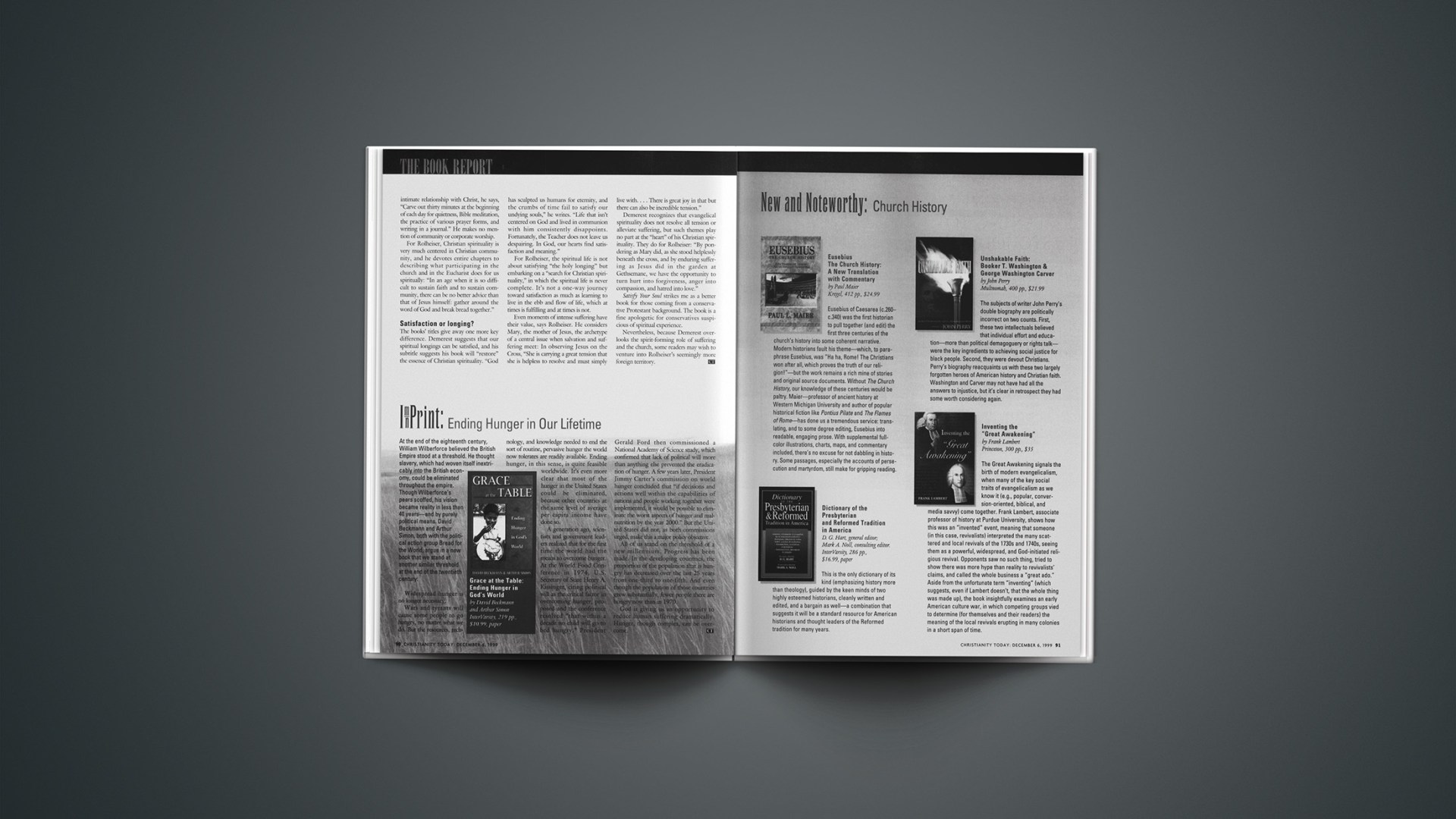At the end of the eighteenth century, William Wilberforce believed the British Empire stood at a threshold. He thought slavery, which had woven itself inextricably into the British economy, could be eliminated throughout the empire. Though Wilber force’s peers scoffed, his vision became reality in less than 40 years—and by purely political means. David Beckmann and Arthur Simon, both with the political action group Bread for the World, argue in a new book that we stand at another similar threshold at the end of the twentieth century:
Grace at the Table: Ending Hunger in God’s World
by David Beckmann and Arthur Simon
InterVarsity, 219 pp.,
$10.99, paper
Widespread hunger is no longer necessary.
Wars and tyrants will cause some people to go hungry, no matter what we do. But the resources, technology, and knowledge needed to end the sort of routine, pervasive hunger the world now tolerates are readily available. Ending hunger, in this sense, is quite feasible worldwide. It’s even more clear that most of the hunger in the United States could be eliminated, because other countries at the same level of average per capita income have done so.
A generation ago, scientists and government leaders realized that for the first time the world had the means to overcome hunger. At the World Food Conference in 1974, U.S. Secretary of State Henry A. Kissinger, citing political will as the critical factor in overcoming hunger, proposed and the conference re solved “that within a decade no child will go to bed hungry.” President Gerald Ford then commissioned a National Academy of Science study, which confirmed that lack of political will more than anything else prevented the eradication of hunger. A few years later, President Jimmy Carter’s commission on world hunger concluded that “if decisions and actions well within the capabilities of nations and people working together were implemented, it would be possible to eliminate the worst aspects of hunger and malnutrition by the year 2000.” But the United States did not, as both commissions urged, make this a major policy objective.
All of us stand on the threshold of a new millennium. Progress has been made. In the developing countries, the proportion of the population that is hungry has decreased over the last 25 years from one-third to one-fifth. And even though the population of those countries grew substantially, fewer people there are hungry now than in 1970.
God is giving us an opportunity to reduce human suffering dramatically. Hunger, though complex, can be overcome.
Copyright © 1999 Christianity Today. Click for reprint information.










